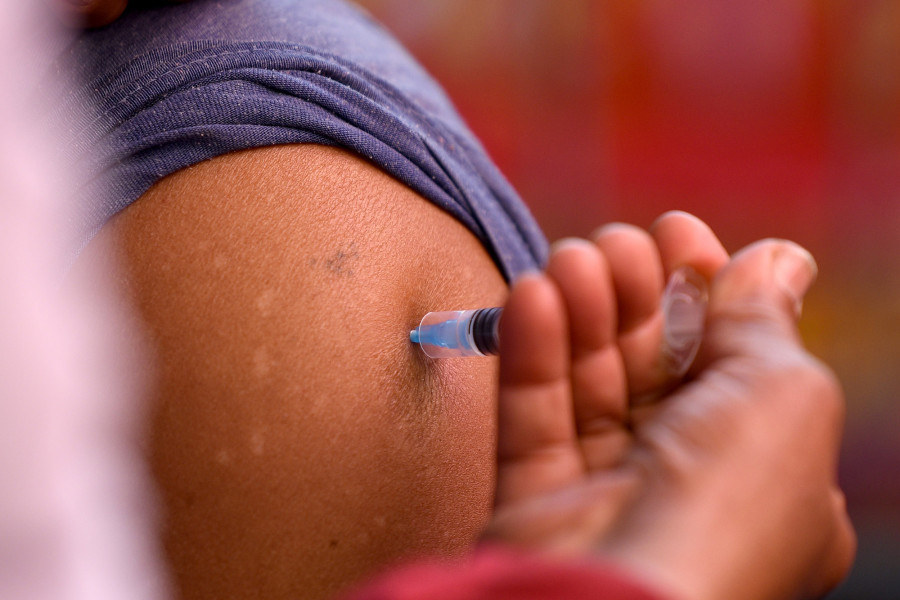Editorial
If AstraZeneca, when?
There are several questions which need clear, consistent and timely answers.
Getting the booster shot is essential for the immune system. It prevents chances of infection or developing severe conditions or death in case of an infection. As such, the booster shot galvanises recipients by boosting the immune response triggered by the first dose. Some 1.4 million citizens above 65 years of age, inoculated with the first dose of the Covishield vaccine between March 7 and March 15, await their booster shot. Time is running out for our elderly, the age group most at risk and which has accounted for the most fatalities due to Covid-19 complications.
On Monday, the Department of Health Services released a notice about the booster dose of the Covishield vaccine. Pointing out that the import of Covishield from vaccine manufacturer Serum Institute of India or through a grant from COVAX is not immediately possible, the government as an alternative would provide the AstraZeneca vaccine, which is similar in nature and composition to Covishield as a booster dose, the notice reads. But the statement doesn’t say when the booster shots will be available or how the government intends to secure the lifesaving doses, and instead begs for patience from citizens.
There is no headway in procuring vaccines since the heated controversy over alleged commissions and pricing of the Covishield vaccine. The vaccine drive, which resumed on Tuesday after receiving 1 million preloaded Vero Cell vaccines under grant assistance from China, has also drawn flak from the public for lack of planning and government inattention beyond Kathmandu Valley. Additionally, as it had done in the past, the Health Ministry revised the age group for immunisation at the last minute, again exposing how the bureaucracy continues to fail the taxpayers.
As district authorities and the Home Ministry mull over adjusting modalities of restrictions before announcing a “loose down”, the decision-makers must be guided by epidemiological data and public health experts so that the country opens up safely, especially with the highly contagious Delta variant of the coronavirus in circulation. A second year into the pandemic, there is still no pharmaceutical treatment. Science and real-world evidence are clear that vaccination and public health measures can help save lives. That the plan needs to be foolproof cannot be overstressed after thousands of deaths, suffering and misery following lax public health measures in the months leading to an explosion of cases and fatalities.
From expanding testing and enforcing public health measures to securing enough doses, the leadership needs to develop an implementable plan. Rather than announcing unattainable goals like vaccines for all by September or before the elections, the government needs a Covid-19 risk communication, and public engagement strategy to ensure impact and reach. Many senior citizens hoping to get Covishield booster shots had to return from the vaccination centres on Tuesday and Wednesday. Similarly, those awaiting the second dose of Vero Cell showed up way before they qualified for the booster shot. Outside the valley, the last-minute revision in the age group has eroded public confidence. Moreover, this makes things hard for local authorities.
The online registration system introduced last month for the public seeking first-time appointments was a welcome initiative. But did the ministry implement it before resuming the vaccine drive? How can people seek an appointment for their second dose? What’s the strategy behind revising age groups swiftly after announcing that jabs will be available? How will the government procure the vaccines approved for use in Nepal? Will the government implement a proper vaccine protocol before a new vaccine schedule is released? These are just a few of the questions which need clear, consistent and timely answers from the government. To start with, if AstraZeneca, when?




 18.12°C Kathmandu
18.12°C Kathmandu














